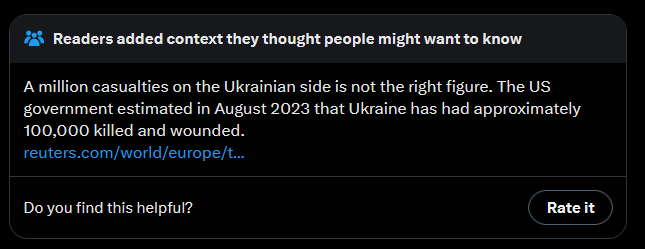I'm not sure either, I have one other picture of a Five-Seven like this (maybe by the same guy as this one, dunno) but I have no idea what the purpose is

maybe it's just a "hey, coincidentally the space between the frame and the flashlight is just big enough to put a cartridge in there, isn't that neat?"












 um actually the US says that only a few Ukrainians have died (based on propaganda fed to them by the Ukrainians)
um actually the US says that only a few Ukrainians have died (based on propaganda fed to them by the Ukrainians)
there were some M16s captured too... real weird how those got there